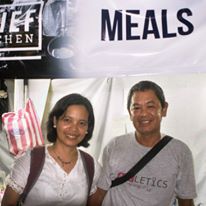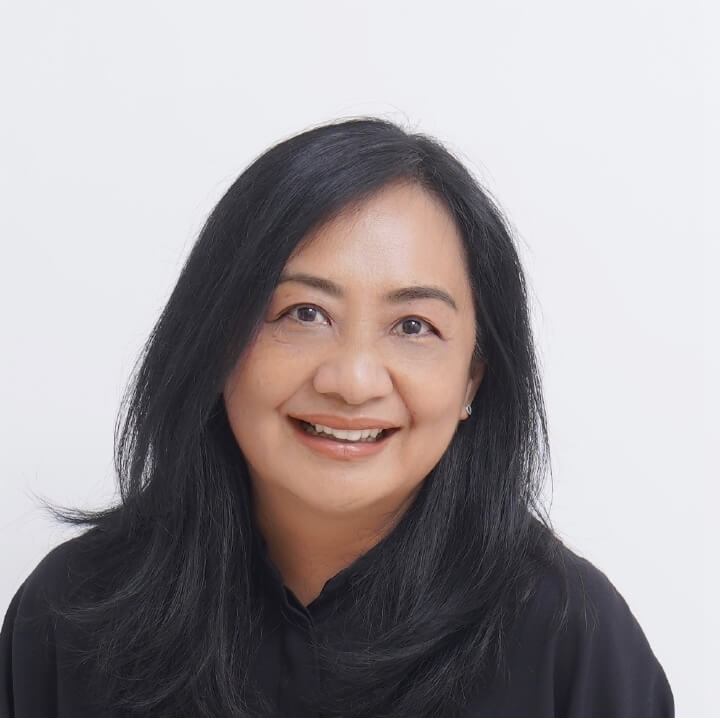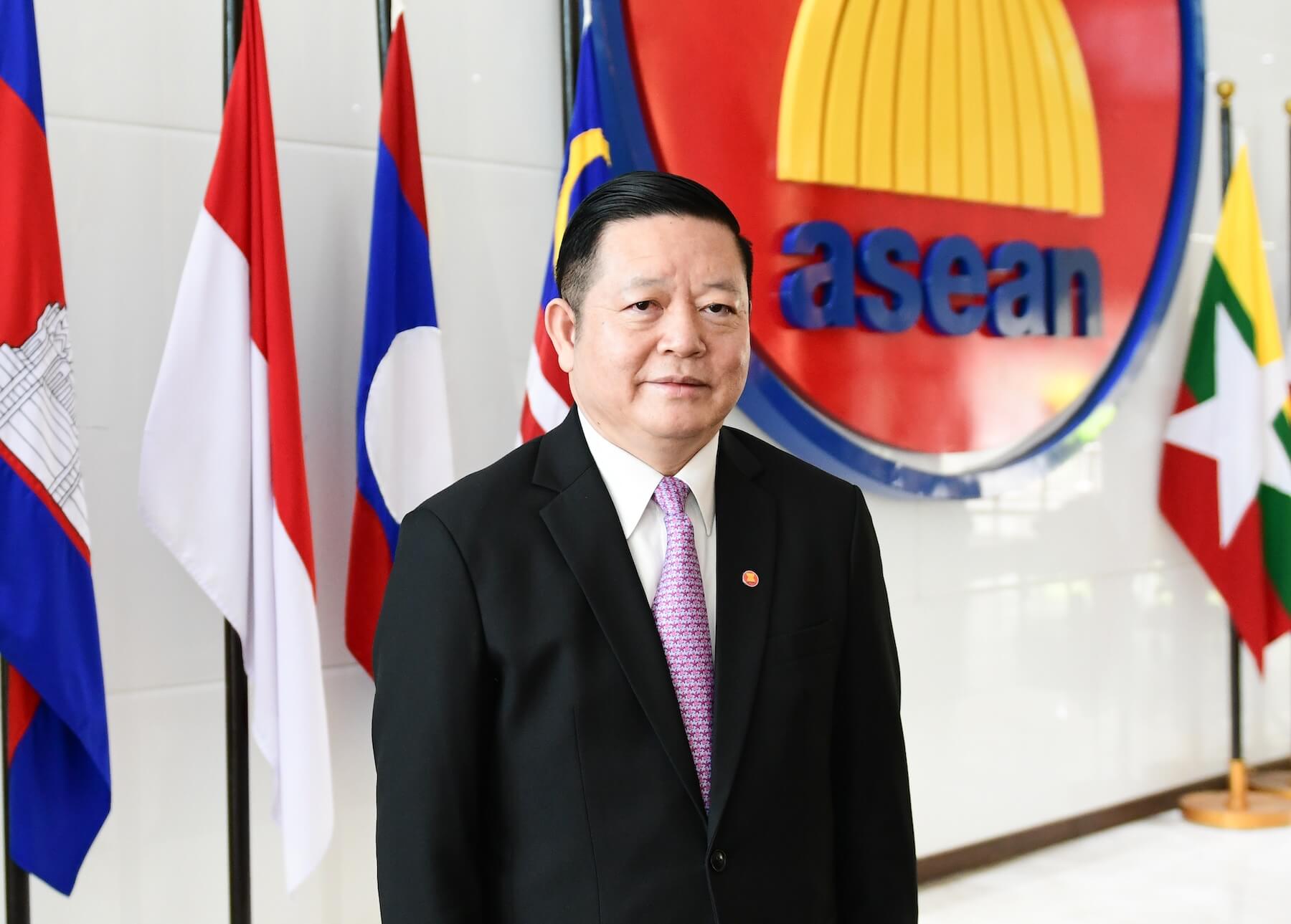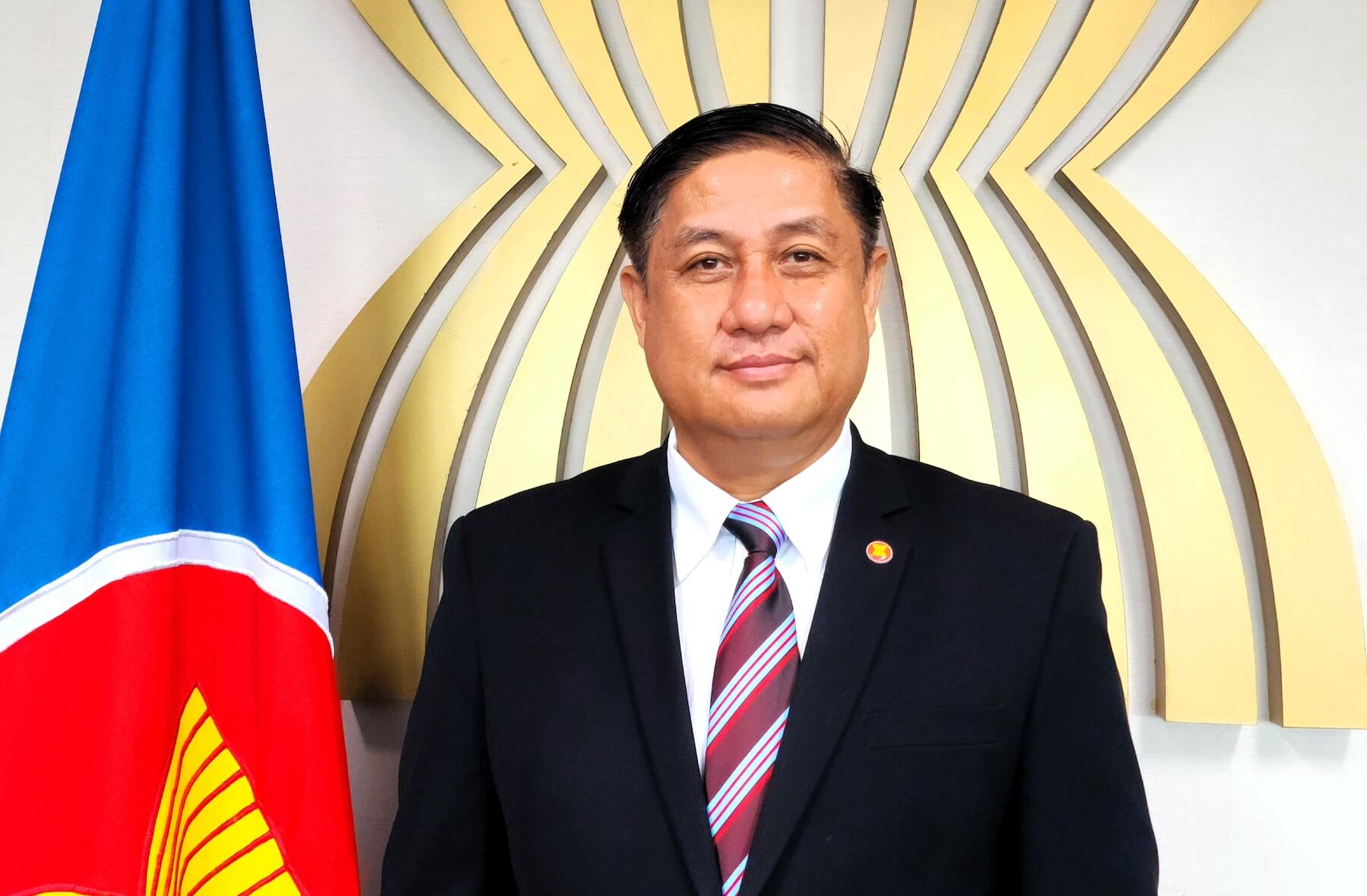



Freelance photographer Alex Baluyut and theater actress Preciosa Leano are the founders of the non-profit organisation, Art Relief Mobile Kitchen in the Philippines (AMRK), that feeds distressed populations in disaster and conflict areas.
The couple first started cooking hot meals for displaced victims of Super Yolanda (international name: Haiyan) in November 2013. AMRK has since evolved into an independent movement for food. In response to the COVID-19 pandemic, they have set up a network of mobile kitchens, run by local volunteers and communities in 5 different provinces.
AMRK most recently provided hot meals for those affected by Typhoon Quinta that hit the Philippines in late October
Alex:
We’re foodies. The idea of feeding a lot of people or building an NGO that would feed people in disaster areas was starting to ferment in my mind. And when Yolanda happened, I said this is the time to test that idea, to bring a mobile kitchen, cook for a lot of people.
We decided to bring our whole kitchen to the Villamor Air Base where survivors from Tacloban City were landing on C130 Air Force planes. I made a call on Facebook that I wanted to cook congee for the displaced and within 30 minutes, someone loaned us a vehicle. Then we received fund donations for rice and chicken.
Precious:
It was a motley group of people. Friends responded and all our friends are artists. So, there were photographers, and there were theatre artists who arrived, and painters. For 22 days, 24/7, we were able to gather around 10.2 tons of food and equipment.
In disaster areas, we usually serve meals in bowls. We cook a dish like say, chicken soup (Filipino tinola soup). Imagine people, who have just lived through a strong typhoon, smiling instantly as they see smoke and smell the aroma of piping hot soup. Every single time, we see instant smiles. So, that’s why our line has always been – let’s give them hot, comfort food.
Alex:
We give them nourishment but we also give them hope. Their morale is boosted because they know there are people who care for them. For Filipinos, when you cook for them, you become a life-long friend.
Precious:
We have cooked in more than 60 disasters, from Batanes (northermost tip) to Jolo (southernmost tip), so practically the entire Philippines. All kinds of disasters, from earthquakes to typhoons and conflicts, both natural and man-made disasters.
Now for this pandemic, we’ve been cooking for 8 months since the lockdown. The kitchens are ready to deploy, anytime they have equipment. They have dedicated volunteers who are willing to go and set up a kitchen when, where it’s needed in their areas. During the pandemic, at one point there were 5 kitchens cooking at the same time. We see the economic impact of the pandemic. In the low-income communities, where there is no work, and no pay. The hunger is palpable. You can really feel the hunger. If we are able to provide hot meals for 3 days in a week, that makes a huge difference.
Alex:
It has now evolved. Like our crew in this permanent kitchen in this village; they are victims from a fire in February. We cooked meals for them when the pandemic started in March and now, they’re the kitchen crew. The volunteers now come from the community. It’s more logical to get local volunteers, so we don’t have to buy expensive airline tickets and fly them to disaster areas. A big part of our work now is community organising. We bring in 2 to 3 people and find volunteers in the community. In our experience, there are always one or two community cooks. That’s a sure thing.
Precious:
As soon as we start chopping garlic and onions, the smell of aromatics cooking brings people in.
Alex:
Volunteer cooks start grabbing the ladle from and say, “I’ll do it”, and they never let go. We get offers of help from local government units, private individuals who own big houses, churches. The culture of hot meals for emergency food aid is growing. It has caught on and other organisations have mushroomed and we need to support each other.
Precious:
Many of these other organisations are led by former Art Relief Mobile Kitchen volunteers too. There’s an innumerable number of disasters in this country, innumerable. So, how long do we plan to do this? As long as we can, the will is always there. So, if there’s a will, there’s a way. And as long as we get support from the community, from donors outside the community of artists, the community of people who have been following us, we’ll be there. We have the will and there will always be people willing to participate in what we do.
Alex:
We are learning that in emergency food aid, you really need to have the will. If you have the will, it is always possible to provide hot meals to those who need them.








